Story co-produced with Daniel Reid
Marsha Lee Baker’s story reflects the side of the military community that supports from behind the scenes. The families of service members endures alongside them and their own unseen scars.
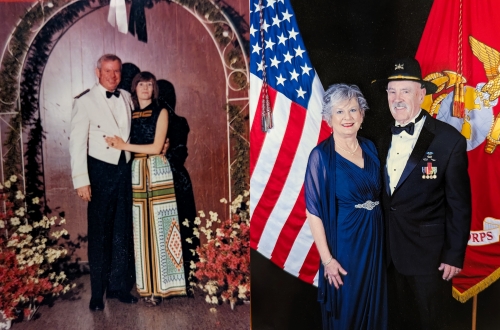
When service members are battling their demons, their families battle alongside them.
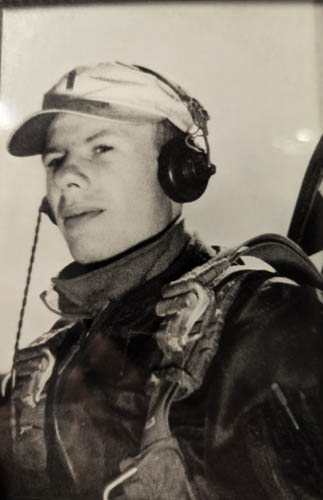
Marsha Lee grew up as what the military community calls an “Air Force brat,” signifying child of a member of the Air Force. Each branch has its variations of the titles.
Her father was a career man, serving for about 20 years flying C-130 gunships for the Air Force from 1952 to 1973.
She moved around most of her childhood, going wherever the Air Force said to go. This is a timeless and common story that all military families are familiar with.
“I moved around so much,” Marsha Lee said. “I went to schools in different locations, and I realized why it is that some kids want to stay in the same school system until they finish high school or until they get married. I just didn’t think much of it.”
Marsha Lee grew up when talking about military service was taboo and unheard of.
“He never told us anything,” she said. “I remember one time when he was already retired, he had a video taken of him in the cockpit that my mom wanted to show my brother and I. We never talked about that together.”
She was unaware of the extent her mother and father were suffering until she met her husband, Tom Baker, and he explained what her father was going through.
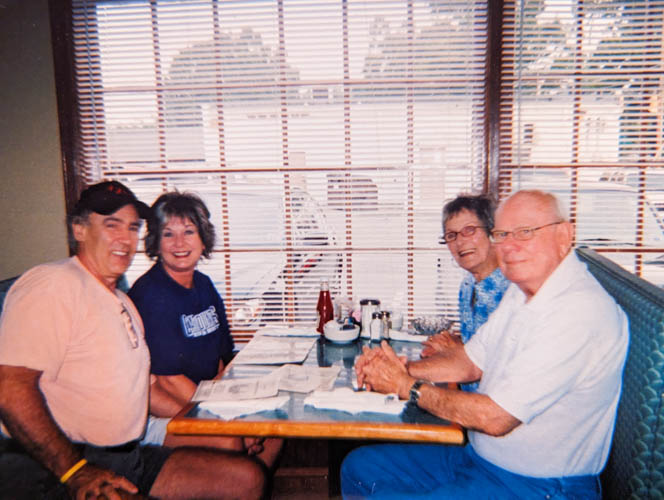
“My dad could go off and sit over (in a corner) and talk with Tom,” Marsha Lee said. “Tom was able to tell me things about what my dad actually did and what he experienced. I’d never know. It started opening up a whole new way of me to think about my mother, I started to see what it was like being an Air Force wife.”
She met Tom when she was a faculty member at WCU teaching writing and rhetoric. They are the definition of polar opposites.
The events of September 11th were a trivial test for the couple. Tom brought a military approach to the conversation, and Marsha Lee brought a nonviolent and peaceful approach.
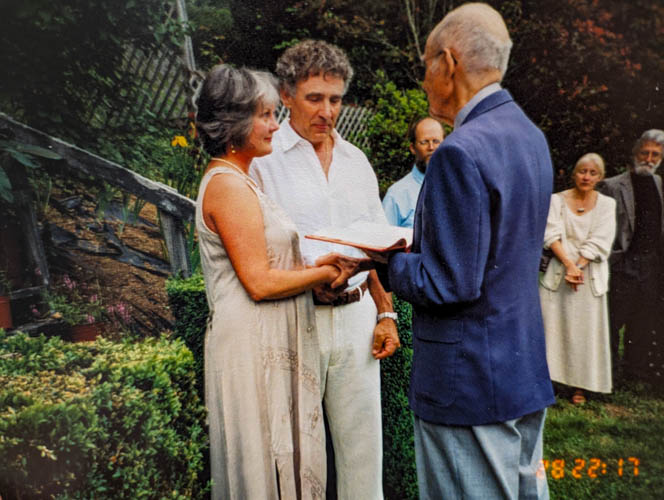
“We worked through how he could be a hawk, and I could be a dove and get along, much less marry, much less want to live together forever,” Marsha Lee said.
There would be times early on in Marsha Lee and Tom’s marriage when the trauma Tom was suffering from would make an appearance through angry outbursts at other drivers on the road and sleepless nights caused by nightmares.
“How can you be this angry at human beings just on the same road with you,” Marsha Lee said. “I learned about things, I guess kind of connected to the PTSD. I remember on time at a Western football game when fireworks were going off, and that move put him in a freaked-out position. I’ve learned as the woman who loves him to pay attention to those kinds of things and understand more about what war really is through his telling me stuff.”
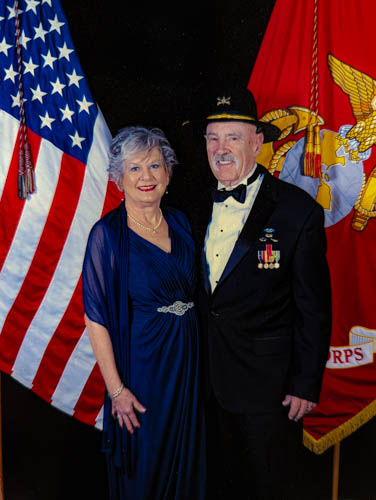
Marsha Lee’s writing and English background aided in Tom’s healing process of writing about his trauma.
“Students always want to know what you want,” Marsha Lee said. “With Tom, it was a little bit different questions. He still wanted to know what are the rules (about writing) or how (he) should start this out. I just said you’re going to figure out the process as you go.”
As Tom would write about the traumatic things he had endured in Vietnam, Marsha Lee would read and edit the memoir. These writings would turn into Tom’s book Warrior Wannabe: A Memoir.
“We really developed this relationship as a writer and reader, and then he was a veteran, and I’m a professor, and we’re figuring out who to bring out interests and abilities together,” Marsha Lee said. “We are husband and wife.”
Together, they have learned how to manage the PTSD. The unseen scars will always be there for Tom and Marsha Lee, and they have learned ways to help manage the side effects.
“I didn’t know how serious, how deadly serious the darkness got for Tom,” Marsha Lee said. “But when I found out, I hope we take care of each other.”


